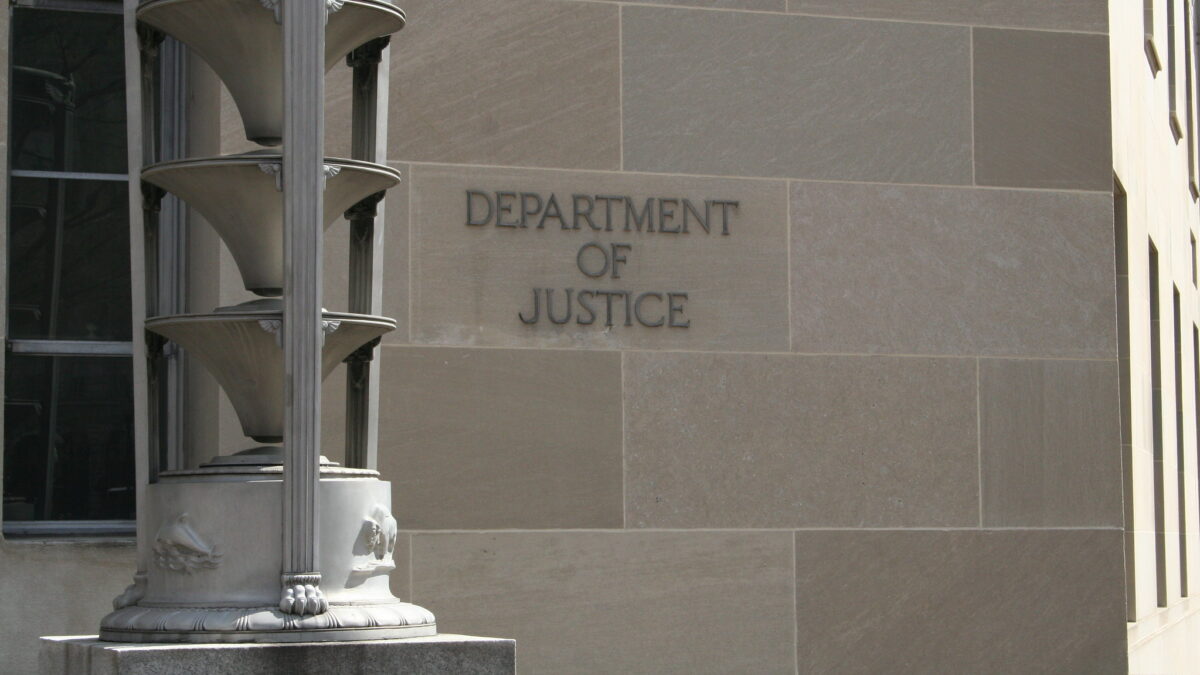An attorney with the voting rights division of the Department of Justice — which enforces federal laws related to voting — allegedly violated election law when she voted in the 2020 presidential election in North Carolina, a new memo by the American Accountability Foundation outlines.
Longtime DOJ attorney Janie Sitton cast a ballot in North Carolina’s 2020 general election, despite being a resident of Washington, D.C., at the time. While Donald Trump ended up carrying North Carolina by just 1.3 points, the race was a dead heat until the very end. This was not the case in the District of Columbia, however, where Trump earned only 5 percent of the vote. Perhaps this is why Sitton chose to vote in the Tar Heel State rather than D.C. — and it’s a prime example of how skirting election laws can contribute to rigged elections.
On Monday, the American Accountability Foundation (AAF) filed bar complaints in both North Carolina and D.C. over Sitton’s presumed misconduct. In the memo compiled by AAF, voter data shows Sitton as a resident and active voter in D.C. since Aug. 13, 2010, voting in five elections leading up to 2018. Since 2018, Sitton has claimed a D.C. homestead deduction on her tax filings. To claim that tax deduction, residents must declare that the property is their principal residence, according to the memo.
“Submitting a false statement on these property tax records can subject the applicant to criminal penalties, according to the fraud and false statement laws under 47-4106 of the Code of the District of Columbia,” according to AAF.
Sitton also owns a condominium in North Carolina, which she bought in 2002. Tax documents indicate Sitton’s mailing address for the condominium is her Washington, D.C., address.
In August 2020, however, Sitton registered to vote in North Carolina using the address of her condo, per the state’s Board of Elections Voter Database. Shortly after Sitton registered to vote in North Carolina, she cast a ballot in the 2020 general election as well as a municipal election in November 2021. In May 2022, Sitton abruptly restored her voter registration in Washington, per D.C. Board of Elections data.
Sitton was essentially voting in North Carolina as if that were her primary residence while claiming a homestead deduction on her apparently real primary residence in D.C. A year prior to casting her ballot in the 2020 election, Sitton even signed a mortgage agreement to keep her North Carolina condo as a second non-residence property, per AAF.
Such behavior ostensibly violates North Carolina state statute, which, according to AAF, defines “what is and is not considered residency for the purposes of registering to vote within the state.” The statute defines residency as:
(1) That place shall be considered the residence of a person in which that person’s habitation is fixed, and to which, whenever that person is absent, that person has the intention of returning….4) If a person removes to another state or county, municipality, precinct, ward, or other election district within this State, with the intention of making that state, county, municipality, precinct, ward, or other election district a permanent residence, that person shall be considered to have lost residence in the state, county, municipality, precinct, ward, or other election district from which that person has removed [emphasis added].
Presumably, Sitton never had the intention of making her North Carolina condo her primary residence when she cast her ballot in the 2020 election.
“Janie Sitton, a senior attorney in the DOJ Voting Section, lied about her residency to register to vote in North Carolina so she could vote in a competitive Presidential election,” AAF Founder Tom Jones told The Federalist. “If DOJ election attorneys are unwilling to abide by the most straightforward of election laws, how can we trust them to enforce voting laws in the upcoming election?”
Sitton’s alleged partisanship is nothing new to the DOJ, which has a history of politically motivated abuse of federal law. For example, the agency is actively involved in delaying election integrity efforts in Florida, has sued both Georgia and Texas over additional election integrity legislation, and is helping facilitate Biden’s federal takeover of elections. The DOJ’s current associate attorney general, Vanita Gupta, headed a DOJ lawsuit attempting to block voter ID laws in North Carolina in 2015.
Not to mention that the current head of the DOJ’s Civil Rights Division (which Sitton’s voting rights division falls under), Kristen Clarke, led a lawsuit against then-Georgia Secretary of State Brian Kemp’s election integrity policies as a private lawyer, peddled the Jussie Smollett hate crime hoax, and in college argued that blacks are the superior race. In other words, it’s not just Sitton that appears to be a politically motivated actor, it’s pretty much the entire DOJ.
“Instances like this show how sophisticated election lawyers can game the system,” former Ohio Secretary of State Ken Blackwell told Breitbart. And ” how easily voting laws can be leveraged by those who know how those laws are written.”
The DOJ did not respond to The Federalist’s request for comment.





